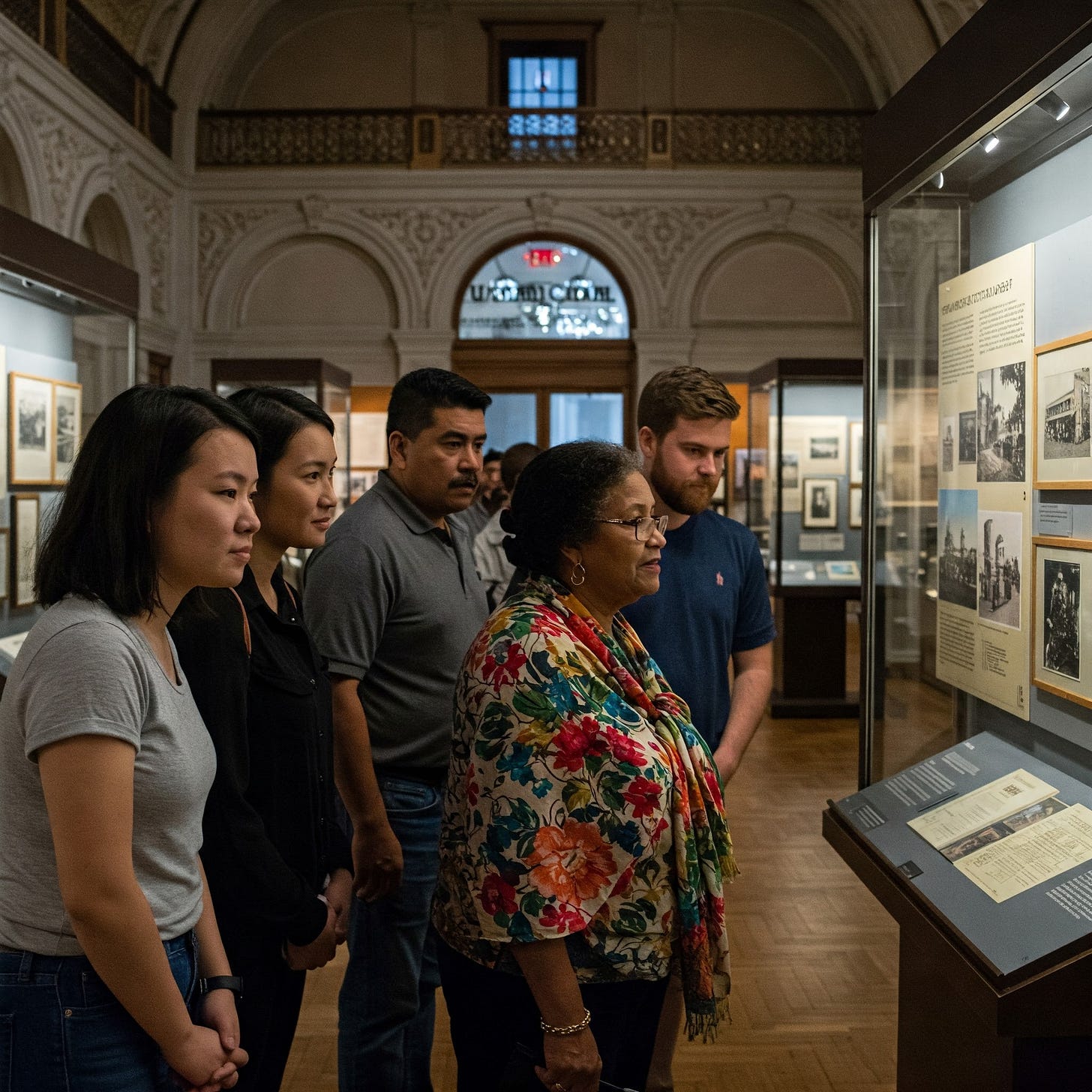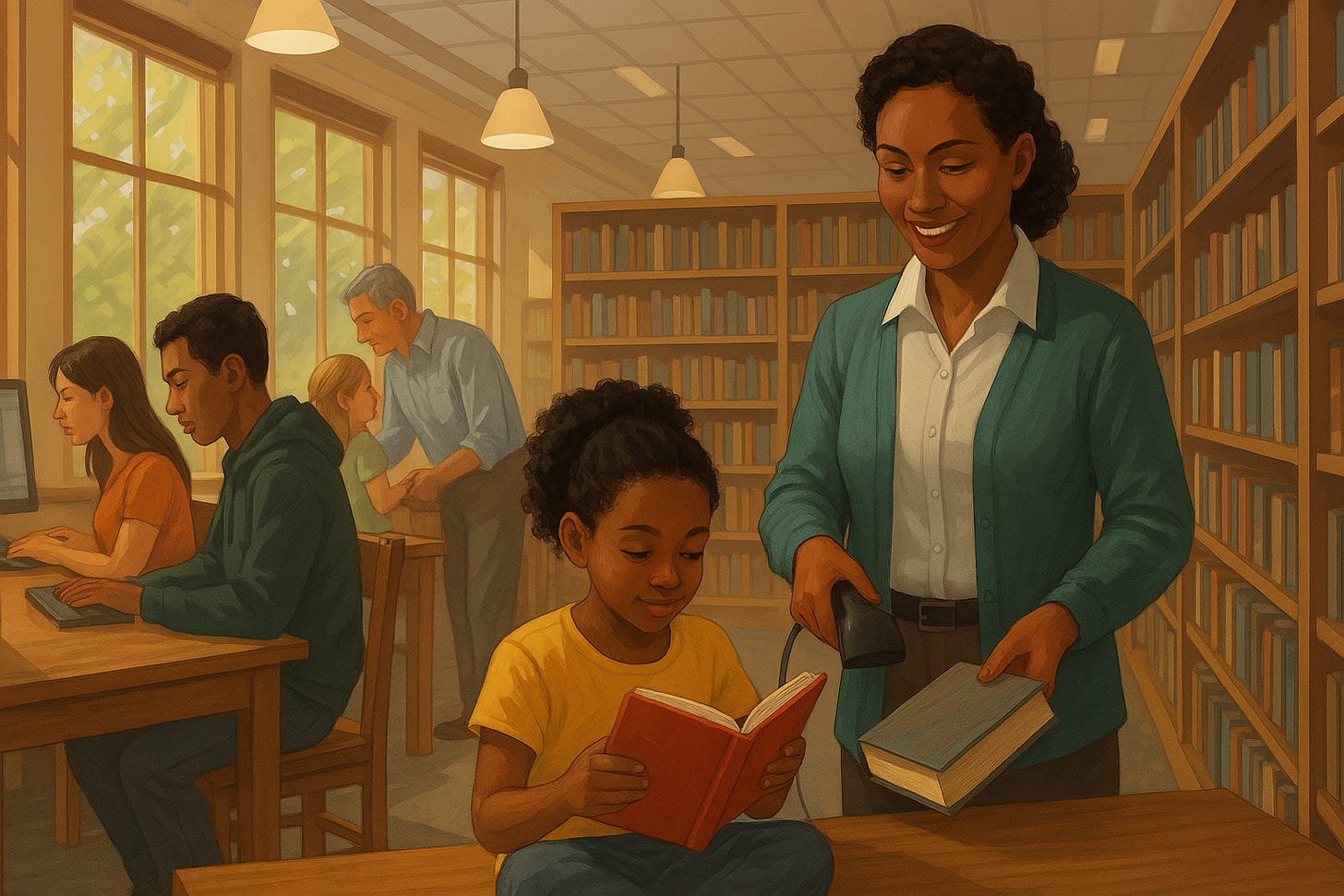🟦Public Libraries & Museums
A ranked guide to advocacy groups protecting access to knowledge, culture, and community services.
This guide highlights organizations that protect and advance public libraries and museums at the national and state levels, including several groups based in Washington state.
Each group offers resources for public engagement—such as advocacy toolkits, petitions, media support, and campaign alerts—empowering activists to defend access to information, cultural heritage, and community services.
About These Advocacy Group Guides: I’ve created more than 60 issue advocacy guides to help people connect with effective organizations and take meaningful action. If you’re interested in other issues, you can explore them all here: Advocacy Groups by Issue.
American Library Association (ALA) – Office for Intellectual Freedom
The primary national defender of the freedom to read, ALA leads library policy advocacy and helps local activists fight censorship, defunding, and access restrictions.
A political action committee and nonprofit that mobilizes voters, tracks legislation, and supports campaigns to protect public libraries across the country.
American Alliance of Museums (AAM)
The top national advocate for museums of all kinds, AAM offers tools for federal and state-level advocacy on funding, education, and community access.
A nonprofit think tank aligned with EveryLibrary, it provides research, polling, and strategy tools to build public support for libraries.
A strong national voice against book bans and information suppression, PEN America equips activists and educators to counter censorship in public libraries.
National Coalition Against Censorship (NCAC)
Defends freedom of expression in libraries, schools, and museums, with resources for local activists facing censorship and content challenges.
A grassroots network of library workers and privacy advocates fighting surveillance and supporting digital rights in public library systems.
Advocates statewide for the public value of arts, heritage, science, and culture—including libraries and museums—through education, lobbying, and coalition building.
Washington Library Association (WLA)
Coordinates state-level library advocacy, offering action alerts, legislative guides, and training to empower members and supporters across Washington.
Washington Museum Association (WaMA)
Supports Washington museums through advocacy resources, outreach strategies, and coordination with national partners to defend cultural access and funding.
Public Library Association (PLA)
A division of the American Library Association focused on community-centered public library services and policies, with advocacy tools for local action and national campaigns.
Promotes information equity and local journalism, supporting libraries and museums as inclusive community hubs through media justice campaigns.
Top Issues in Library and Museum Advocacy
Censorship and Book Bans: A growing threat to freedom of expression in libraries and schools, often targeting marginalized voices.
Public Funding Cuts: Local, state, and federal budget threats can result in closures, reduced services, or loss of access for vulnerable communities.
Federal Support and Agency Defunding: Programs like the Institute of Museum and Library Services and National Endowment for the Humanities remain politically vulnerable, requiring active defense by both national and local advocates.
Equity and Inclusive Access: Ensuring that rural, low-income, and marginalized communities have full access to information, arts, and learning opportunities.
Digital Access and Information Justice: Libraries play a critical role in closing the digital divide, offering free broadband, tech access, and digital literacy support.
Privacy and Surveillance: Increasing concerns about data tracking and third-party access to library usage, especially in marginalized communities.
Worker Protections and Labor Solidarity: Support for fair pay, unionization, and safe working environments for public-facing library and museum staff.
Climate Readiness and Emergency Resilience: Libraries and museums must be equipped to respond to and recover from climate-related disasters while serving the public.
Anti-Bias Education and Historical Truth: Museums and libraries face political backlash for presenting inclusive and accurate accounts of history and social justice.
Libraries and Museums as Civic Spaces: Trusted spaces for public dialogue, voting access, and community resilience are under attack and must be actively defended.



